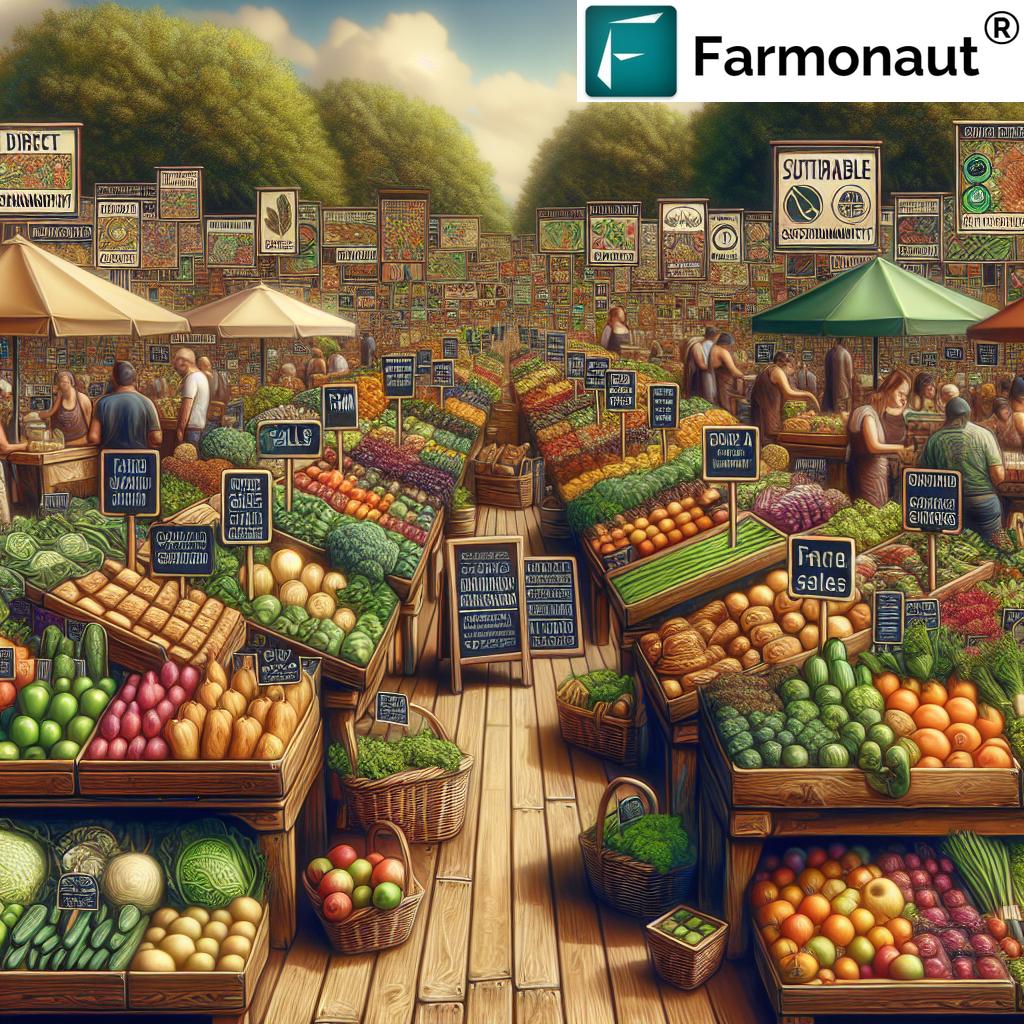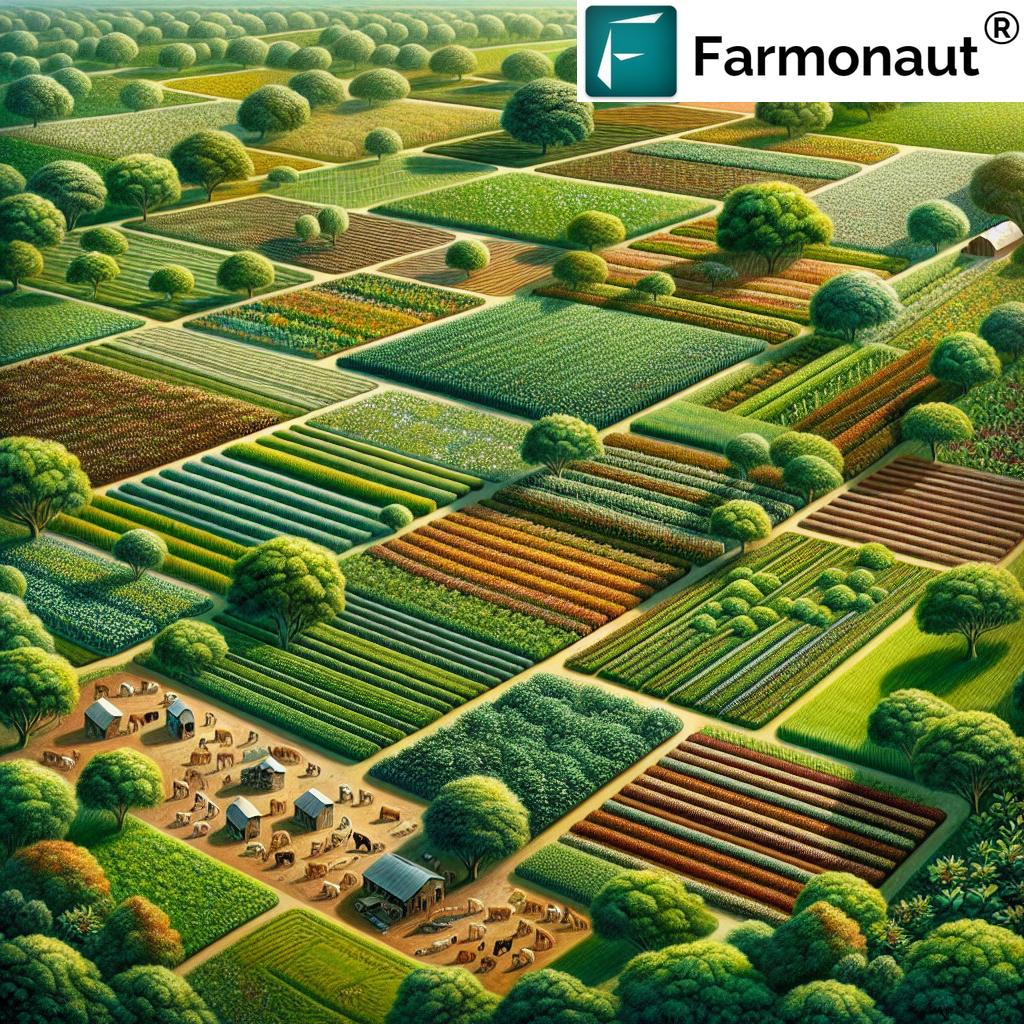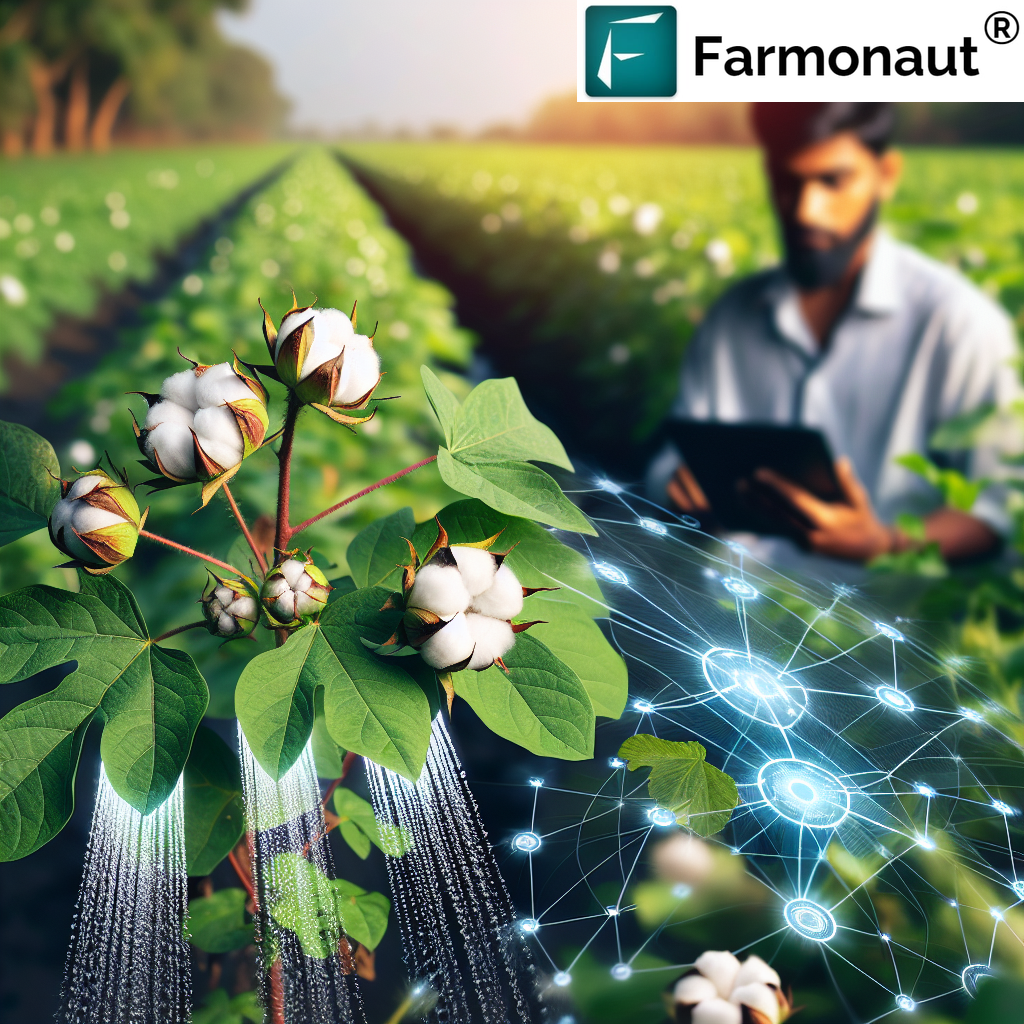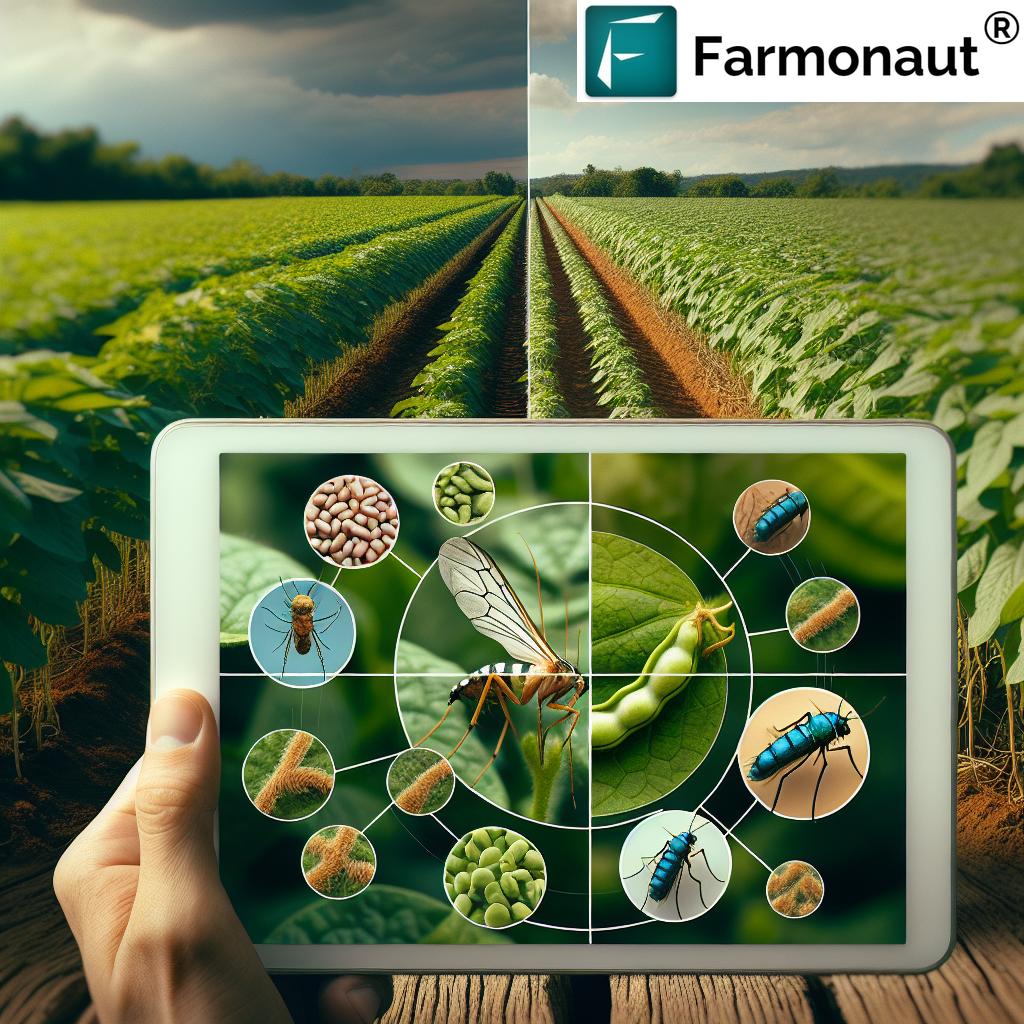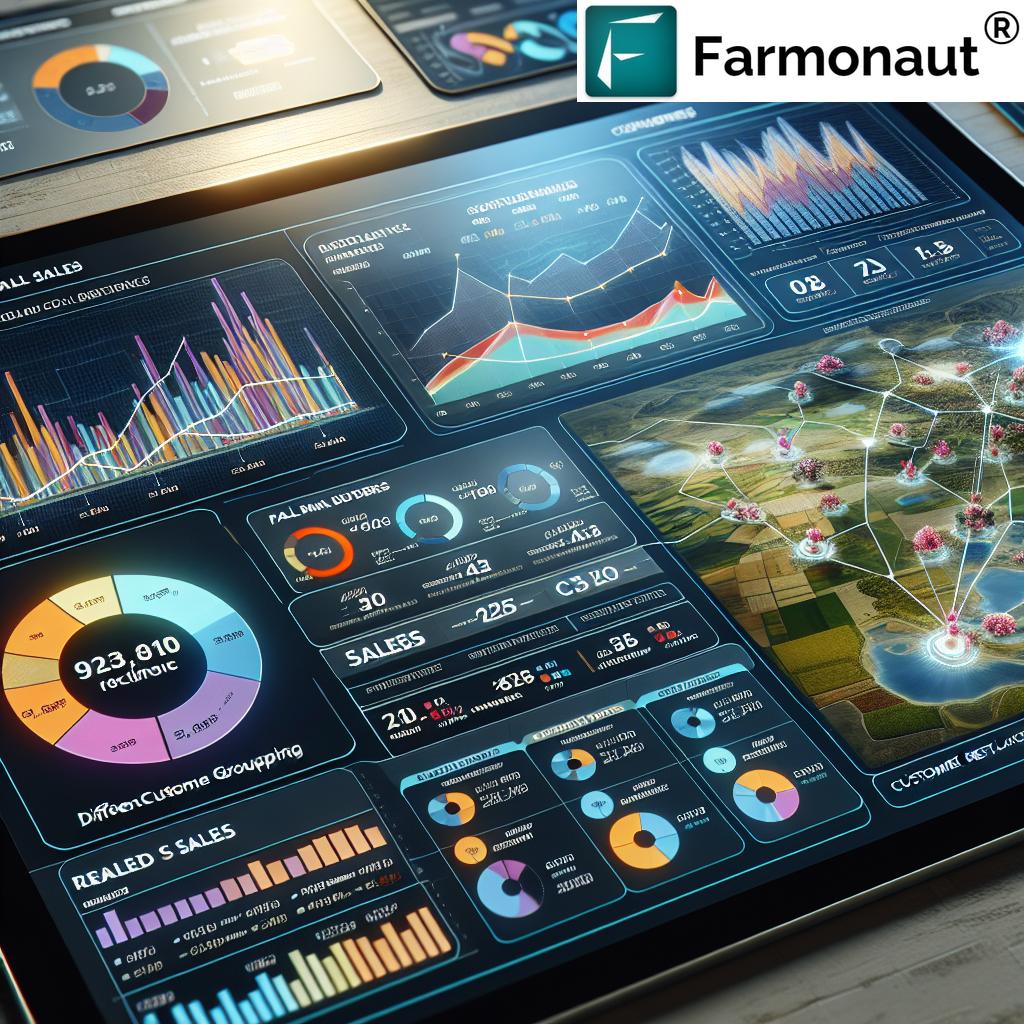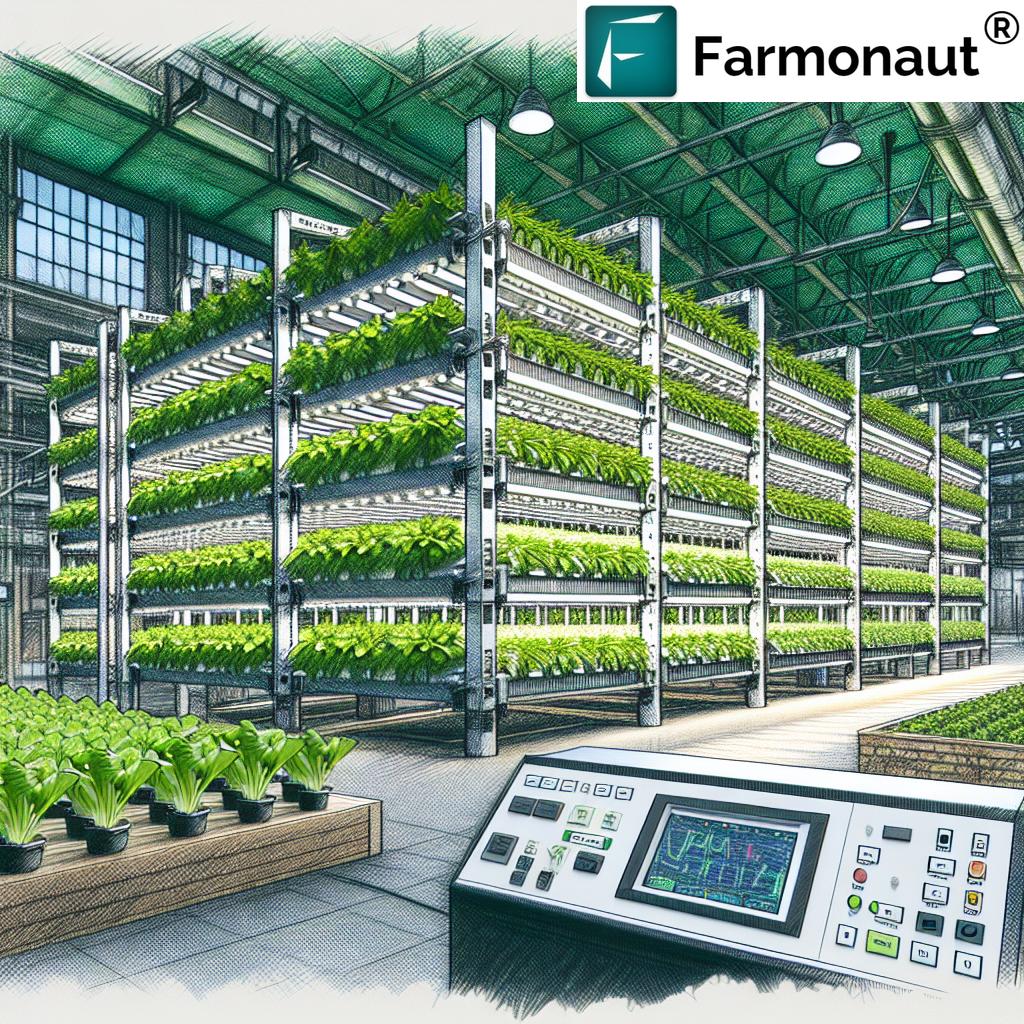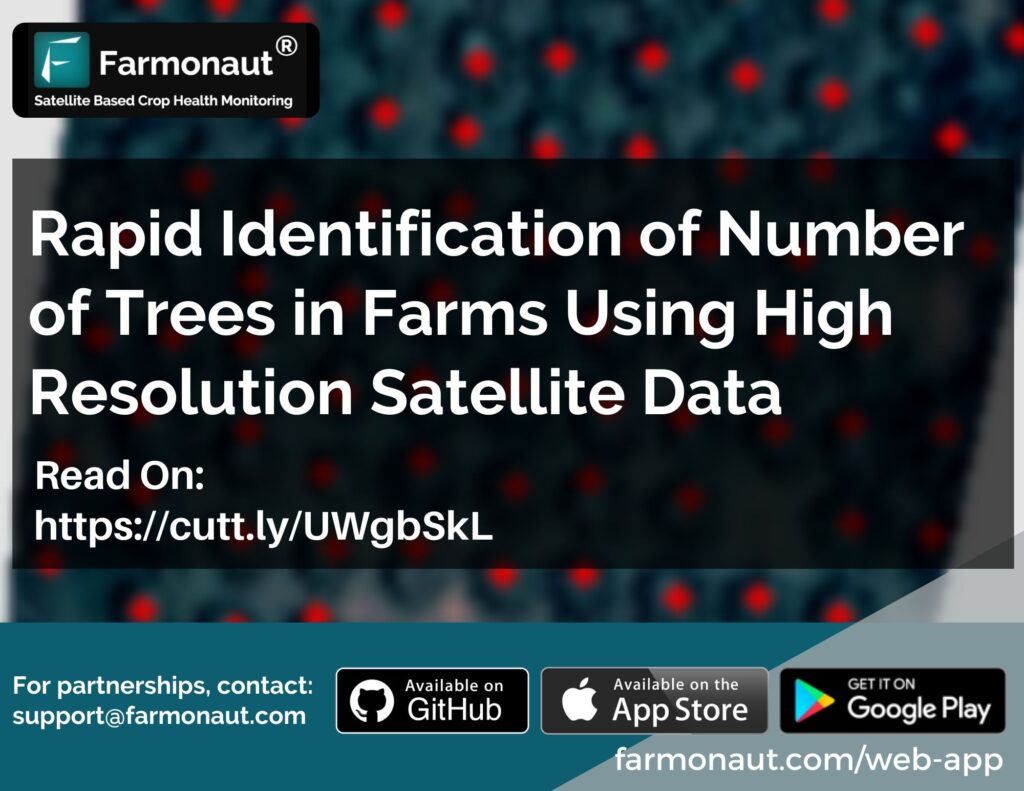Marketing for Agriculture: 7 Shocking Trends for 2024
“Over 60% of farms plan to boost digital marketing budgets in 2024, reflecting a major industry shift.”
Summary: Why Marketing in Agriculture is Essential
Marketing in agriculture, farming, and forestry has evolved into a complex and essential discipline. Today’s agricultural marketing strategies no longer merely involve promoting and selling farm products through traditional channels. With shifting consumer preferences, rapid digitalization, and stricter demands for sustainability and transparency, producers must adopt multifaceted, data-driven approaches to thrive.
As we step into 2024, we see the convergence of digital marketing, direct-to-consumer (DTC) approaches, community-driven initiatives, data analytics, and innovative technologies shaping how farmers and agribusinesses connect with consumers and stakeholders. The trends detailed in this article will help us all gain deeper insights into building a resilient, sustainable, and profitable farm brand in the modern market.
Trend 1: Direct-to-Consumer Farm Sales Surge
Direct-to-consumer (DTC) sales in agriculture are not just a passing phase—they represent a seismic shift in the industry. From farm stands and farmers’ markets to subscription-based Community Supported Agriculture (CSA) programs, these methods cut out intermediaries, providing farmers with more profit while consumers gain access to fresh, local produce straight from the source.
The Rise of Farmers’ Markets and On-Farm Stands
Farmers’ markets and on-farm stands allow growers to showcase their products directly. These venues offer unique opportunities for face-to-face customer engagement, instant feedback, and invaluable community connections. By bringing vibrancy and authenticity to local commerce, these markets help build customer loyalty in agriculture that transcends mere transactions.
- Higher Profit Margins: No more sharing revenue with intermediaries.
- Faster Feedback Loop: Refine offerings based on direct customer input.
- Trust-Building: Personal interactions foster transparency and connection.
Community Supported Agriculture (CSA) Programs Expand
CSAs are redefining local food systems. Producers encourage consumers to subscribe for regular deliveries of seasonal products, offering stability and upfront capital. The impact is profound:
- Farmers benefit from a committed customer base and improved cash flow.
- Consumers receive fresh, seasonal goods while directly supporting sustainable farming systems.
- Reduced transportation costs and minimized environmental impact.
On-Farm Sales & Experiences—A Path to Differentiation
Inviting customers to “pick-your-own” or purchase directly from the farm provides transparency and a unique, memorable customer experience. These activities, bundled with agritourism or on-farm workshops, deepen customer loyalty, enhance the brand, and turnaround perceptions of modern farming practices.
- Learn more about improving farm management and customer engagement with large scale farm management solutions from Farmonaut.
- Explore how blockchain-based traceability enhances transparency for DTC agricultural sales.
“Direct-to-consumer agricultural sales are projected to grow by 25% in 2024, transforming traditional supply chains.”
Trend 2: Digital Marketing for Farmers Becomes Non-Negotiable
Digital transformation is now foundational for successful agricultural marketing. Today’s consumers increasingly discover, research, and purchase farm products online. By embracing digital marketing for farmers, agricultural producers can break free from geographic constraints, expand their market reach, and diversify revenue streams.
Social Media, Instagram, and Community Engagement
Platforms like Instagram and Facebook are critical for agricultural marketing. They allow us to create visually compelling stories, highlight product quality, and foster ongoing customer engagement.
- Instagram: Perfect for sharing behind-the-scenes content and showcasing farm operations.
- Facebook: Useful for creating community groups and advertising farm events.
- Youtube: Offers long-form storytelling and educational opportunities for producers.
Tip: Authentic photos and real-time stories outperform staged or overly promotional content, driving better engagement and trust.
Selling Farm Products Online: E-Commerce for Agriculture
- E-commerce Platforms: Farmers can set up online stores, using their own website or platforms like Shopify/BigCommerce, or join regional online marketplaces specializing in food/agriculture.
- Direct Sales: Enables direct order placements, subscriptions, and even bundled produce boxes.
- Faster Payment Cycles: No more waiting for middlemen or delayed market payments.
Educational Content Marketing & Email Newsletters
Sharing knowledge about sustainable practices, product origins, and seasonal crops via email marketing or blogs keeps loyal customers informed and connected year-round.
Discover Farmonaut APIs for seamless integration of satellite and weather data into custom digital marketing platforms: Farmonaut API Portal | API Docs
- Maximize your digital marketing for farmers with real-time carbon footprint tracking solutions.
Trend 3: Community Engagement and Partnerships Reshape Branding
Local community involvement is redefining farm brand recognition and customer loyalty. As consumers seek authentic, socially conscious brands, farmers who open their gates and build grassroots relationships stand out.
Hosting Farm Events, Festivals & On-site Workshops
On-farm events—including harvest festivals, open days, cooking classes, and eco-tours—not only create memorable experiences but also help educate the community about agriculture.
- Trust & Transparency: Customers witness sustainable farming practices firsthand.
- Deeper Connections: Community engagement builds a loyal, vocal customer base.
- Marketing Asset: These events become rich content for social media and educational marketing.
Local Partnerships Expand Reach
Collaborating with nearby restaurants, grocers, or schools can propel a farm brand into new sectors. Menu collaborations, retail shelf placements, and cross-promotional community programs amplify the farm’s story and share its value with wider audiences.
- Collaboration Example: A farm supplies seasonal produce to a local restaurant, while the chef shares stories and recipes on the farm’s Instagram, cross-promoting both brands.
- Community Support: Donations to food banks, school talks about sustainable agriculture, or creating “farm days” for vulnerable groups tie the farm’s success with local well-being.
- Enhance your on-farm event marketing using fleet management logistics tools from Farmonaut.
Trend 4: Sustainability, Transparency & Traceability Lead
The surge in eco-consciousness among modern consumers means sustainable farming practices, transparency, and product traceability have become central to successful agricultural marketing. Demonstrating environmental stewardship, safe production, and ethical sourcing is more than good ethics—it is a winning marketing strategy.
Transparency and Blockchain Traceability as Differentiators
Consumers expect to know where their food comes from, how it is produced, and its environmental impact. Blockchain-based systems, like those offered by Farmonaut’s product traceability platform, are game-changers:
- Source Verification: Stakeholders can verify every stage, ensuring authenticity and reducing fraud.
- Building Trust: Full transparency enhances brand recognition and attracts conscientious buyers.
- Compliance & Market Access: Brands using blockchain can meet evolving food safety and sustainability requirements faster.
Learn more about Farmonaut’s carbon footprinting feature, which helps producers monitor and reduce their environmental impact in real-time.
Sustainability as a Marketing Message
- Eco-Labeling: Featuring certifications, ecological achievements, or reduced pesticide use in marketing.
- Resource Efficiency: Communicating water conservation, renewable energy usage, and climate-friendly farming.
- Community Impact: Highlighting involvement in regenerative agriculture and stewardship programs.
Farm brands that communicate their positive environmental stories see higher customer loyalty and market access in both domestic and export markets.
Trend 5: Automation, AI, and Data Analytics Revolutionize Marketing
The integration of artificial intelligence, big data analytics, and automation tools is transforming both farming operations and marketing tactics. Farms embracing these technological advancements can make smarter decisions, predict market trends, and deliver hyper-personalized customer engagement.
AI and Data: Tailoring Offers, Enhancing Profits
- Market Prediction: AI tools analyze sales, weather, and consumer data, allowing more accurate demand forecasting and resource allocation.
- Personalized Offers: Targeted discounts, bundled products, and loyalty programs based on purchase patterns.
- Content Automation: AI can create seasonally relevant newsletters, schedule social posts, and even optimize advertising bids.
With Farmonaut’s Jeevn AI advisory system, producers gain access to real-time, personalized insights that boost productivity, profitability, and marketing agility.
Automation and Precision in Marketing Operations
Farms using satellite imagery and automation tools can segment fields, optimize logistics, and refine their production and promotional cycles. Farmonaut’s satellite-based crop health and fleet management solutions empower clients to:
- Monitor crop conditions and adapt outreach based on anticipated yield or supply surpluses
- Efficiently plan fleet management and streamlined logistics for local deliveries and CSA programs
- Provide real-time updates to stakeholders for transparent communications
Trend 6: Educational Content Marketing & Building Brand Authority
In an era dominated by information overload, building enduring relationships with customers requires authenticity and value-driven storytelling. Educational content—blogs, how-to guides, farm tours, or cooking workshops—elevates a farm’s authority and differentiates its products.
Workshops, Live Demonstrations, and Farm Tours
- Cooking demos using seasonal products show customers how to maximize value.
- Farm tours allow visitors to literally see sustainable practices in action—strengthening trust and transparency.
- Workshops on storing or processing produce build loyalty and customer retention (e.g., how to can tomatoes from your CSA box).
Blogs, Videos, and Social Media: A Content Ecosystem
Sharing the story behind a product, insights into agriculture trends, or the science of crop management through blogs, newsletters, and short clips positions your farm as an industry leader. Focus on authenticity—real images, honest stories, and transparent communication attract today’s informed customers.
- Pro Tip: Consistency is more important than perfection. Weekly updates documenting farm activities or monthly “meet the farmer” videos are more effective than polished but infrequent content.
Explore how Farmonaut’s technology can power educational content by providing real-time satellite visuals and data to share with customers.
Trend 7: The Rise of Integrated Farm Management Platforms
To thrive in the digital-first era, producers are seeking unified solutions that connect farm management, marketing strategy, operations optimization, and customer relationship management. Platforms like Farmonaut provide a central hub for data-driven insights and seamless operations.
Features Modern Producers Demand
- Real-Time Crop Monitoring: Use of satellite data to assess field health and inform marketing timelines.
- Resource & Fleet Management: Integrated logistics planning links field operations to direct-to-consumer delivery scheduling.
- Data-Informed Decision-Making: Cloud dashboards that empower faster, evidence-based adjustments to promotions, CSA box contents, and supply chain management.
Modern farms, from small local growers to large regional businesses, benefit from accessible precision agriculture, scalable digital solutions, and direct links with consumers via unified platforms.
- Check out Farmonaut’s affordable subscription model below – designed to scale from individual farms to regional agribusinesses.
Comparison Table: Marketing Trends in 2024
| Trend Name | Brief Description | Estimated Adoption Rate in 2024 (%) | Potential Impact on Farm Revenue (%) | Example Application |
|---|---|---|---|---|
| Direct-to-Consumer Sales | Farmers sell directly via markets, CSAs, online platforms | 42% | +15–30% | CSA subscription boxes, farm store, U-pick events |
| Digital Marketing for Farmers | Leveraging social platforms, e-commerce, email & video | 67% | +10–25% | Instagram recipes, online order portal, farm newsletters |
| Community Engagement | Events & partnerships for brand building | 38% | +10–18% | Farm tours, cooking classes, municipal collaborations |
| Sustainability & Traceability | Marketing certified eco-practices & transparent sourcing | 54% | +20–30% | Blockchain traceability, carbon labels, eco-branding |
| Automation & AI in Marketing | AI-driven personalization & predictive analytics | 25% | +12–25% | Dynamic pricing, AI-based campaign optimization |
| Educational Content Marketing | Blogs, videos, workshops & social education | 47% | +8–14% | Recipe newsletters, storage demos, farm blogs |
| Integrated Farm Management Platforms | Tech solutions unifying farm, data, and marketing | 33% | +20–40% | Farmonaut’s satellite-based web/mobile platform |
Frequently Asked Questions (FAQ)
What are the most effective agricultural marketing strategies in 2024?
The most effective strategies blend direct-to-consumer sales (via farmers’ markets, CSA programs, and online platforms) with digital marketing across Instagram, e-commerce, and brand storytelling. Additionally, community engagement, transparency, sustainability, and adoption of AI-powered data insights are proving essential for building resilient agricultural businesses.
How can Farmonaut help improve farm marketing and operations?
Farmonaut equips producers with advanced, satellite-driven tools for real-time crop health monitoring, AI-based advisory, blockchain product traceability, and resource management. These empower data-driven decisions, support marketing transparency, streamline logistics, and contribute to sustainable farming. Their solutions are accessible via web, Android, and iOS, with APIs for deeper integration.
Why is transparency so important to agricultural consumers?
Today’s consumers want to know the origins, safety, and sustainability of their food. Providing transparency, especially through technologies like blockchain traceability, builds customer trust, differentiates your brand, and helps meet regulatory and export requirements.
What is the benefit of using AI in farming and marketing?
AI enables predictive analytics, more precise targeting, personalized offers, demand forecasting, and automated decision support. In both farm operations and marketing, this results in reduced costs, smarter resource allocation, and higher profitability.
How do I get started with Farmonaut’s platform?
Visit the Farmonaut web, Android app, or iOS app to sign up and explore features. APIs, documentation, and product info are available on the official website for all user types.
Conclusion: Shaping Your Farm’s Future
The landscape of agricultural marketing is changing rapidly. The combination of direct-to-consumer farm sales, digital marketing, community engagement, sustainability, AI-driven decision-making, and integrated management platforms will be the defining factors for farm, community, and product success in 2024 and beyond.
By leveraging emerging digital strategies and focusing on authentic, local, and sustainable business models, we set our operations on a course for sustained profitability, enhanced brand recognition, and meaningful relationships throughout the agricultural supply chain. Whether we’re producers, foresters, or involved in farm marketing, these trends offer actionable pathways to thrive in a competitive, ever-evolving sector.
- For resource-conscious, tech-forward farms, Farmonaut offers precision, transparency, and scalability needed to navigate this new marketing era—affordably and efficiently.
Ready to modernize your agricultural marketing strategies for 2024? Get started with Farmonaut today and lead your field with innovation, transparency, and authenticity.


